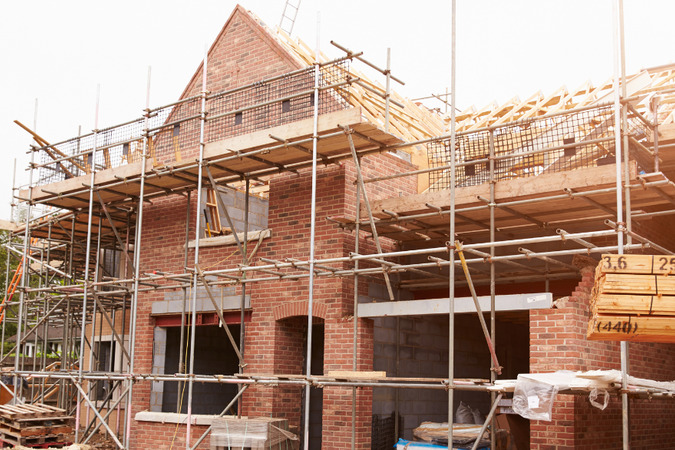Should you buy a property that needs renovation?

Whether you’re a first-time buyer looking to get on the property ladder, or a home-owner looking to move somewhere cheaper, you’re probably looking for the best way to get the most for your money. One option for you to consider is buying a house in need of renovation.
According to Rightmove, homes that need renovating are the most in demand amongst buyers right now. There are lots of reasons for their growth in popularity, from their lower price point to the opportunity for personalisation. In this blog we’ll talk you through all the advantages of buying a fixer upper and what you should look for before buying.
What are the advantages to buying a renovation property?
Lower price point
The most apparent reason for purchasing a home that requires renovation is the price. Properties in need of renovation are £29,000 cheaper than the national average. If you're a first-time buyer struggling to afford a home in your area or wanting to move up the property ladder without a significant jump in cost, renovation projects could be an ideal option for you.
Personalisation
While not a completely blank canvas, houses that require renovation provide you with the opportunity to create your dream home. You'll have the freedom to design the home you've always wanted, whether it's installing new flooring in the living room or installing a bay window in your bedroom. You can personalise it as much as you want and tailor it to suit your needs.
Potential for profit
Purchasing a property that requires work can be an excellent investment opportunity, particularly if you can secure it at a lower price. With some smart renovation work, you can significantly increase the value of your property and sell it for a much higher price than your initial investment.
What should you look out for in a renovation project?
This depends on various factors; your budget, your timeline, whether you plan to sell the property or keep it long-term. The two main things to look out for are:
Condition of the property
When it comes to purchasing a renovation property, there are lots of types of projects with varying levels of commitment in terms of time and money. Homes that just need cosmetic renovations like repainting the walls, putting in new cabinets and even redoing the flooring will cost more upfront, but will be quicker to fix up and you can probably do most of the work yourself. Houses which need structural changes, such as tearing down walls or redoing the electrics, will be more labour intensive and have higher renovation costs, but should have a cheaper upfront price.
Planning permission
Renovating a property to increase its value often involves structural modifications that may require planning permission. This can involve quite a bit of research. Consult with a contractor to see what is feasible for the property and determine whether the necessary planning permission is already in place. It’s also worth looking at neighbouring properties. If several houses on the same street have visible extensions or loft conversions, it is likely that you will have permission for similar modifications.
If you’re a first-time buyer:
Your budget may be limited as you enter the property market. While low-priced fixer-uppers may seem tempting because of their low upfront price, they may cost you more in the long term with major structural projects. It’s also important to think about your living situation. If you’re buying your first house you might not have any other housing options, so you will need a house that is at least habitable upon moving in.
If you’re aiming to move up the property ladder:
You’re likely looking for a larger space with more bedrooms and square footage. Look for houses with potential for extensions, either by expanding the back or utilising the loft, and check if any planning permission is already available. You should hopefully have a bigger budget than a first-time buyer, allowing you to plan bigger projects and more impactful renovations.
If you’re looking to invest:
Targeting low-cost homes that require extensive renovation may increase potential profit margins. However, it is crucial to have a clear plan before making a commitment, detailing the necessary tasks and expected duration for completion. Make sure you research sold houses in the area (try and find similarly renovated houses if you can), and see if your estimated costs would still be low enough to turn a profit. As an investor, the main goal of buying a house that needs renovation is to add value to its selling price.
Interested in buying a renovation project? Check out the homes we currently have for sale and contact your local branch for more information.






